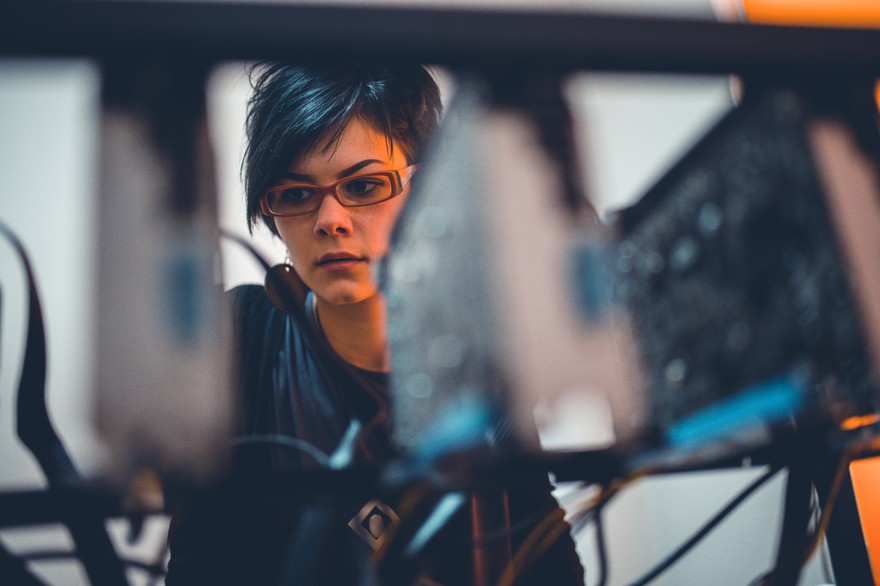The idea of a blockchain was first conceived as the mechanism supporting Bitcoin (BTC -1.27%). To solve the double-spending problem associated with digital currencies, a person known as Satoshi Nakamoto devised an immutable ledger of transactions that ties blocks of data together with digital cryptography.
While the idea works extremely well for Bitcoin and other cryptocurrencies, there are loads of other useful applications of blockchain technology. Here are 15 of them.

Smart Contracts
4. Insurance
Using smart contracts on a blockchain can provide greater transparency for customers and insurance providers. Recording all claims on a blockchain would keep customers from making duplicate claims for the same event, and using smart contracts can speed up the process for claimants to receive payments. Allianz (ALIZ.Y -0.34%) uses blockchain for European auto claims, and it's found a reduction in time and costs as a result.
5. Real estate
Real estate transactions require a ton of paperwork to verify financial information and ownership and then transfer deeds and titles to new owners. Using blockchain technology to record real estate transactions can provide a more secure and accessible means of verifying and transferring ownership. That can speed up transactions, reduce paperwork, and save money. ShelterZoom, a cybersecurity and document control business, uses blockchain to collect documents and provide an immutable financial record of the entire real estate purchase process.
Applications 6 - 10
6. Secure personal information
Keeping data such as your Social Security number, date of birth, and other identifying information on a public ledger (e.g., a blockchain) may actually be more secure than current systems more susceptible to hacks. Blockchain technology can be used to secure access to identifying information while improving access for those who need it in industries such as travel, healthcare, finance, and education. IBM (IBM +0.10%) offers businesses a blockchain-based platform known as Digital Credentials, which lets employees store everything from employee IDs to occupational licenses.
7. Voting
If personal identity information is held on a blockchain, that puts us just one step away from also being able to vote using blockchain technology. Using blockchain technology could make sure that nobody votes twice, accept only eligible voter ballots, and prevent tampering. What's more, it could increase access to voting by making it as simple as pressing a few buttons on your smartphone. At the same time, the cost of running an election would substantially decrease. Romania became the first European Union nation to use blockchain technology in its parliamentary election in 2024 to guarantee the integrity of the electoral process and to strengthen its transparency.
8. Government benefits
Another way to use digital identities stored on a blockchain is for the administration of government benefits such as welfare programs, Social Security, and Medicare. Using blockchain technology could reduce fraud and the costs of operations. Meanwhile, beneficiaries could receive funds more quickly through digital disbursement on the blockchain. The Netherlands is using a blockchain-based infrastructure to administer its pension program.
9. Securely share medical information
Keeping medical records on a blockchain can allow doctors and medical professionals to obtain accurate and up-to-date information on their patients. That can ensure that patients seeing multiple doctors get the best care possible. It can also speed up the system for pulling medical records, allowing for more timely treatment in some cases. And, if insurance information is held in the database, doctors can easily verify whether a patient is insured and their treatment is covered. Beth Israel Deaconess Medical Center in Boston, along with researchers at MIT, conducted a six-month test of blockchain medical records, which successfully made it easier for doctors to access information from disparate sources.
10. Artist royalties
Using blockchain technology to track music and film files distributed over the internet can make sure that artists are paid for their work. Since blockchain technology was invented to ensure the same file doesn't exist in more than one place, it can be used to help reduce piracy. Using a blockchain to track playbacks on streaming services and a smart contract to distribute payments can provide greater transparency and the assurance that artists receive the money they're owed. Music rights management and distribution platform Revelator has implemented blockchain to manage royalties.
Applications 11 - 15
11. Non-fungible tokens
Non-fungible tokens, or NFTs, are commonly thought of as ways to own the rights to digital art. Since the blockchain prevents data from existing in two places, putting an NFT on the blockchain guarantees that only a single copy of a piece of digital art exists. That can make it like investing in physical art but without the drawbacks of storage and maintenance.
NFTs can have varied applications, and ultimately, they're a way to convey ownership of anything that can be represented by data. That could be the deed to a house, the broadcast rights to a video, or an event ticket. Anything remotely unique could be an NFT.
12. Logistics and supply chain tracking
Using blockchain technology to track items as they move through a logistics or supply chain network can provide several advantages. First of all, it provides greater ease of communication between partners since data is available on a secure public ledger. Second, it provides greater security and data integrity since the data on the blockchain can't be altered. That means logistics and supply chain partners can work together more easily and have greater trust in the accuracy and timeliness of data. Tracifier, a German company, uses the technology so businesses can digitally store and share certificate verification data and track products at each step of the value chain process.
13. Secure Internet of Things networks
The Internet of Things (IoT) is making our lives easier, but it's also opening the door for nefarious actors to access our data or take control of important systems. Blockchain technology can provide greater security by storing passwords and other data on a decentralized network instead of a centralized server. Additionally, it offers protection against data tampering since a blockchain is practically immutable. Things Protocol, a distributed protocol for managing IoT devices, helps organizations develop secure IoT applications with blockchain technology.
Blockchain
14. Data storage
Adding blockchain technology to a data storage solution can provide greater security and integrity. Since data can be stored in a decentralized manner, it will be more difficult to hack into and wipe out all the data on the network; a centralized data storage provider may only have a few points of redundancy. It also means greater access to data since access isn't necessarily reliant on the operations of a single company. In some cases, using blockchain for data storage may also be less expensive. Arweave (AR -4.96%) uses blockchain to create a peer-to-peer storage network.
15. Gambling
The gambling industry can use blockchain to provide several benefits to players. One of the biggest benefits of operating a casino on the blockchain is the transparency it provides to potential gamblers. Since every transaction is recorded on the blockchain, bettors can see that the games are fair and the casino pays out. And by using blockchain, there's no need to provide personal information, including a bank account, which may be a hurdle for some would-be gamblers. For example, BetHog, a crypto casino and sportsbook, was launched in 2024 and is built on Solana (SOL -3.05%).
Related investing topics
Blockchain is in its infancy
Blockchain technology has only been around for a dozen years, and businesses are still exploring new ways to apply the technology to support their operations. With the growing amount of digital data used in our lives, there's a growing need for the data security, access, transparency, and integrity that blockchain can provide.






